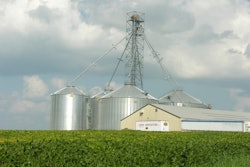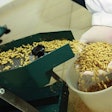Nashville, TN has a lot to be proud of. "Music City" is the beating heart of country music, home of the Grand Ole Opry and rich in American history and world culture. And after June 16, Nashville can also proudly boast that it hosted the 24th annual International Fuel Ethanol Workshop & Expo (FEW), the largest ethanol conference and expo in the world.
The 2008 FEW will be bigger than ever, with an expected attendance of 6,000 - roughly 700 more than last year, and over 600 exhibitors. Dave Blazer, FEW marketing manager, said they've expanded their exhibitor list by about 100 since last year. The 2008 FEW is dedicated to "linking industry and innovation" through 23 technical workshops, a general session with international industry updates, a world-class trade show, and special events that will provide numerous networking and business development opportunities.
Education to Improve Efficiencies
Due to the controversial food vs. fuel debate, the ethanol industry has been put under a microscope and scrutinized by critics worldwide. One goal Blazer hopes to accomplish with the 2008 FEW is to restore faith that the ethanol industry has created a sustainable and commercially viable long-term solution for energy security.
"I hope the attendees will walk away from this FEW and realize they're doing the right thing, and are continuing to make a powerful impact in the global energy industry," Blazer says. FEW program coordinator Travis Hochard and the FEW steering committee worked to formulate educational sessions that will equip attendees with the knowledge they need to address the concerns critics have been dishing out over the past year.
Hochard encourages all registrants to attend the FEW's pre-conference seminar, Ethanol 101: First and Second Generation Ethanol Production. "We're looking forward to our preconference seminar covering first and second generation ethanol production, plant improvement options, and an exploration of how to manage a sustainable ethanol plant. This will help producers understand how to optimize resources and improve efficiencies."
The information-jam-packed Ethanol 101 preconference seminar will present an overview of a number of hot topics including cellulosic ethanol production, ethanol economics, land use and future technologies.
After Ethanol 101 lays the foundation, the 23 technical workshops will provide more detail on these same issues and more. "The main program will expand upon E101 and feature panels and discussions on everything from training the biofuels workforce and plant management to cellulose biorefining and alternative feedstocks" says Hochard. "Although the program was created for the ethanol producer, it can still offer plenty of value to anyone doing business in the industry."
Technological Advances Key to Industry Growth
The 2008 FEW will feature multiple sessions within the concurrent workshops covering the newest cellulosic ethanol production technologies and trends. Registrants can attend Workshop 1: Cellulose Technology Update on the second day of the FEW. Attendees can look forward to learning about state-of-the-art cellulosic ethanol technologies, participate in a cellulosic ethanol case study, hear about the economic viability of converting cellulose to ethanol and examine how one company in Denmark is making cellulosic ethanol work for them.
Global Cooperation is Essential
Showcasing the success of foreign companies is major component of FEW's mission to link industry and innovation. Blazer explains, "I think part of the solution is to unite the ethanol industry on a global level. America is only one part of the equation in this industry becoming more sustainable."
In an effort to start the ball rolling on this visionary "global ethanol community," the FEW is hosting an International Networking Pavilion, sponsored by the Global Biomass Network. The purpose of the Networking Pavilion is not only to mingle with international registrants, but to also provide a rare opportunity for information exchanging in a personal way.
Ethanol and its byproducts are increasingly being developed by nations in all corners of the globe, and for common reasons, according to Hochard. "People from all over the world want energy security and oil is a finite resource. Ethanol's worldwide appeal derives from people realizing that we'll need a more reliable fuel source," says Hochard.
Last year the FEW boasted its highest number of international participants to date with attendees visiting from roughly 35 different countries. FEW coordinators reflected last year's international involvement by bringing in 16 international speakers from 10 different countries. For this year's FEW, Blazer and Hochard are excited about bringing a speaker from the Brazilian Sugar Cane Industry Association (UNICA), to give an Industry Update for Brazil during the opening general session. UNICA has represented the Brazilian bioethanol industry since 1997. Hochard says this will add an important element to the FEW, since they are true pioneers in the biofuels industry.
Exchanging information, international networking and discovering new technologies are all goals of the 2008 Fuel Ethanol Workshop, but coming together and cooperating to ensure the future of the ethanol industry is the paramount objective of this year's conference.
Biofuels in the News
Urbanchuk Joins Influential Biofuels Panel
Prominent economist John M. Urbanchuk, of the global expert services firm LECG, has committed to serving on the select Biofuel Advisory Panel for the Chesapeake Bay Commission. Urbanchuk has extensive experience in agriculture and the biofuels industry, has conducted economic feasibility studies and prepared business plans for organizations interested in building and investing in ethanol and biodiesel plants.
Over the next several months, the Biofuel Advisory Panel will explore the production and use of next-generation cellulosic feedstocks for biofuels in the Chesapeake Bay watershed. The commission says that, if developed correctly, the production of renewable fuels from feedstocks grown and harvested in the region can lead to significant economic and environmental benefits.
Panel members hope the findings will have not only local significance, but also serve to advance the commission's goal to develop the biofuels industry in the bay region.
DuPont, Genecor Create Cellulosic Ethanol Plant
DuPont and Genencor, a division of Danisco A/S, agreed to form DuPont Danisco Cellulosic Ethanol LLC, a 50/50 global joint venture to develop and commercialize the production of next-generation cellulosic biofuel from nonfood sources.
The goal is to maximize efficiency and lower the overall system cost to produce a gallon of ethanol from cellulosic materials by optimizing the process steps into a single integrated technology solution.
The plant will initially target corn stover and sugar cane bagasse as a feedstock. Future targets include multiple ligno-cellulosic feedstocks including wheat straw, a variety of energy crops and other biomass sources.
Rising Fuel Costs Culprit in Food Price Hike
A study released in May by Texas A&M's Agricultural and Food Policy Center illustrates corn prices have had little to do with rising food costs. The report, "The Effects of Ethanol on Texas Food and Feed," also determined that relaxing the Renewable Fuels Standard (RFS) would not result in lower corn prices for livestock and poultry feeders.
The study shows that prices of household groceries are unrelated to ethanol or corn prices. Instead, higher oil prices are the underlying force impacting consumer prices and agriculture. The report was issued in response to mounting questions about the impact of increased ethanol production on the Texas agriculture sector and overall economy.
Tellurian Converts Cooking Oil to Biofuel
Tellurian Biodiesel, an independent distributor and marketer of sustainable quality biodiesel, has entered into a joint venture with Golden State Foods (GSF), a supplier to the quick-service restaurant industry, to recycle used cooking oil into biodiesel that exceeds industry specifications.
The new venture, Encore BioRenewables, plans to launch its first biodiesel production facility in Southern California in early 2009. The company plans to open additional processing plants throughout the United States as the market develops for their product. These plants will be sited near locations that collect used cooking oil from restaurants. Encore will recycle this material in the production of a more sustainable biodiesel fuel.
The biodiesel produced will be sold to trucking companies, municipal fleets and to GSF to fuel its distribution fleet.
Renewable Energy Group Buys IL Plant
Blackhawk Biofuels, LLC announced its acquisition of assets of a 45-million-gallon/year biodiesel production facility under construction in Danville, IL from Biofuels Company of America, LLC.
As part of the signed agreement, Renewable Energy Group, Inc. is providing financing in the form of a convertible loan to Blackhawk.
Renewable Energy Group, Inc. will manage operations and staff at the Danville facility, procure feedstocks and market the biodiesel through REG's national distribution channels as part of a management, operations and services agreement with Blackhawk Biofuels.
The facility was designed to exclusively use vegetable oils; however, Blackhawk Biofuels is partnering with Renewable Energy Group, Inc. to upgrade the plant's process technology to allow for multiple feedstocks to be utilized to produce high-quality biodiesel.


















